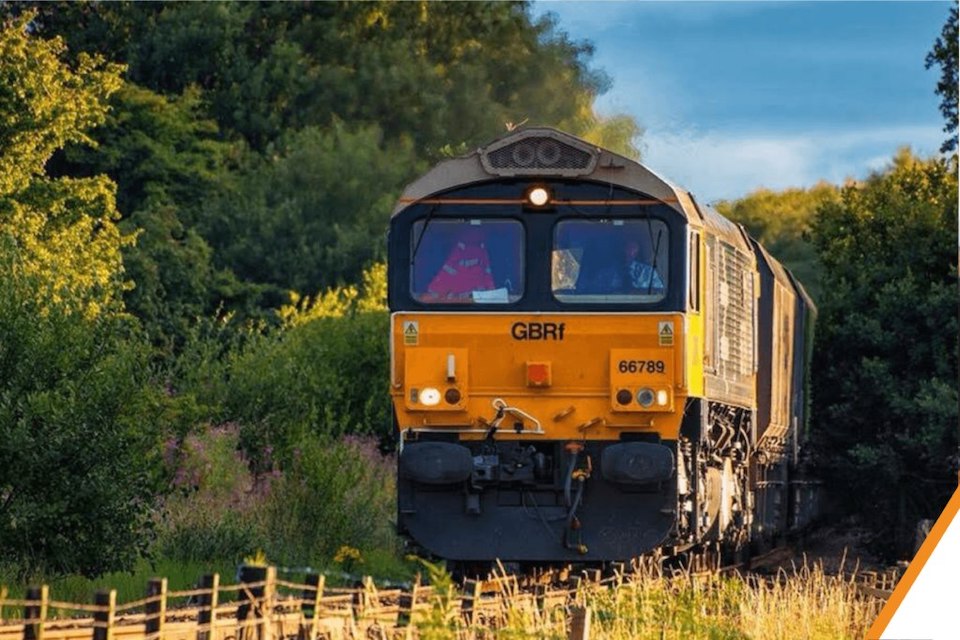Moving goods by rail in Wales has dramatically declined. Now, the Secretary of State in the UK government is calling for rail to be made a top spending priority. It’s been argued that core traffic, particularly coal, has not been replaced. Heavy industry in South Wales, agricultural produce traffic in the mid-Wales counties, and port traffic along the north coast have all been marginalised or transferred to road haulage.
Jo Stevens, the politician with responsibilities as Secretary of State for Wales in the UK government, considers rail to be her “number one priority” for the forthcoming UK Spending Review. Although the devolved government in Cardiff has executive powers over transport matters, Ms Stevens is urging the UK government to contribute to rail projects in Wales.
Admission of under investment
Speaking in Westminster, at the recent meeting of the Welsh Affairs Committee, made up of fellow members of parliament, Jo Stevens said that the UK and Welsh Governments recognised that Wales had not received its fair share of funding in the past. The UK transport secretary, Heidi Alexander, had admitted as much to her Welsh counterpart, Ken Skates, in a letter earlier this month. “We recognise that railways in Wales have seen low levels of enhancement spending in recent years, particularly in the context of major investments,” she wrote. “This makes it more difficult to realise the modal shift needed to sustain a continuous enhancements pipeline.”

As the minister in charge, Ken Skates has oversight of the government agency, Transport for Wales. The Cardiff government has already been proactive in renewing the Welsh rail structure. Money has been spent on renewing the passenger fleet, and instigating the multi-modal “South Wales Metro” concept, combining buses, trams and trains around the populous coastal belt. However, to a large extent, freight services have been left to fend for themselves. Aside from some high-profile timber traffic initiatives, there has been little government intervention in developing the freight network.
Freight access to the upgraded network
Logistics UK, the wide-ranging industry representative body, would like to see that anomaly addressed. They say freight needs to be at the heart of rail investment in Wales. Logistics UK Senior Policy Advisor for Rail, Ellis Shelton, welcomed the Secretary of State’s commitment to the sector but is adamant that the needs of rail freight must be considered alongside those of passenger services.
“The government must not overlook the vital role of rail freight in supporting Wales’ economy and sustainable transport goals,” said Shelton. “Rail freight is essential for connecting Welsh ports, industrial centres and businesses to markets across the UK and beyond. It’s critical that rail infrastructure is improved and rail freight operators are given appropriate access to the upgraded network.”
Lobbying government for Welsh rail freight
Logistics UK says that efficient rail freight corridors are key to reducing road congestion, lowering carbon emissions and supporting Welsh industries. “Any comprehensive rail investment strategy for Wales should include targeted improvements to freight capacity, especially along key routes like the South Wales Main Line and North Wales Coast Line,” added Shelton. “It is important to remember that the economic benefits of enhanced rail freight capabilities would extend far beyond the railway sector. [It would support] jobs and growth across Welsh manufacturing, energy and logistics industries. Logistics UK will be pressing this point in discussions with government in the coming days.”

One point remained moot in evidence from Secretary of State Stevens. She did not commit to reclassifying the high speed rail project HS2 as an England-only project (although that would not be in her gift alone). Its current status is an England and Wales project, which prevents Wales from accessing compensatory funding. Despite this, HS2 tracks do not reach any part of Wales, as reported by RailTech.com. On the wider issue of investment, Stevens was asked to indicate a timeline of planned actions but said she could not “pre-empt” the Government’s Spring Spending Review. That statement is due to be made to Parliament in London on 26 March.